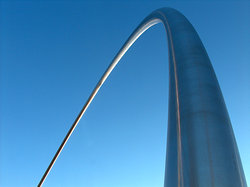American football has always been more than just a sport – it's a cultural phenomenon, an event that brings people together, and a spectacle that captivates millions. The National Football League (NFL) is at the heart of this passion. This organization has taken its game beyond American borders, spreading the thrill of American football across the globe.
In Germany, American football was a particular interest reserved for enthusiasts seeking it out. However, we've witnessed a significant transformation over the past few decades. American football, a sport deeply embedded in American culture, has found a new home in Germany. Recognizing the growing interest, the NFL devised a strategic plan to introduce specific teams to different countries. In this venture, Germany proudly welcomed five teams: the Atlanta Falcons, the Tampa Bay Buccaneers, the New England Patriots, the Kansas City Chiefs, and our home team, the Carolina Panthers.
The NFL International Series has been a game-changer. Since 2022, Germany has been hosting games as part of this series, allowing fans to witness the excitement up close. The iconic Allianz Arena in Munich and Deutsche Bank Park have become the battlegrounds, witnessing clashes between Tampa Bay Buccaneers, Seattle Seahawks, Kansas City Chiefs, Miami Dolphins, New England Patriots, and the Indianapolis Colts.
The response has been overwhelming. Tickets for these games sold out within minutes, underscoring the rapidly growing popularity of American football in Germany.
The NFL's approach goes beyond the games themselves. Recognizing the growth potential, the league has allowed certain teams to market themselves in specific countries freely. This has resulted in an unprecedented connection between fans and teams in Germany, with each game enhancing the bond and expanding the NFL's reach.
While the revenues in Germany are still catching up to the colossal figures generated in the USA, the NFL sees this venture as an investment. Logistics costs remain a challenge, but with every game, the fanbase grows, and the potential for revenue and profits expands exponentially.
As we look forward, the NFL plans more exciting games in Germany. The game scheduled for late 2024 at Allianz Arena Munich promises another blockbuster event.
In conclusion, American football has not just scored touchdowns on the field in Germany; it has scored the hearts of fans, becoming an integral part of the sporting landscape. As the excitement continues, we can only expect the NFL's presence in Germany to reach new heights.
Stay tuned for more thrilling moments on and off the field!
Marius Krause, Law Clerk, BridgehouseLaw Charlotte
Image: ConstantContact





:max_bytes(150000):strip_icc()/mickeys-mouse-trap-010224-a8b16e352a23496abb3993214794405f.jpg)
